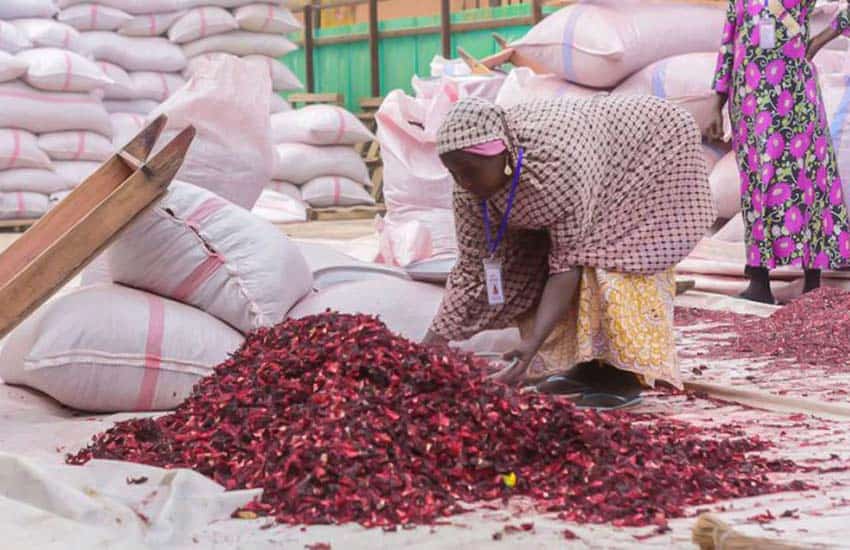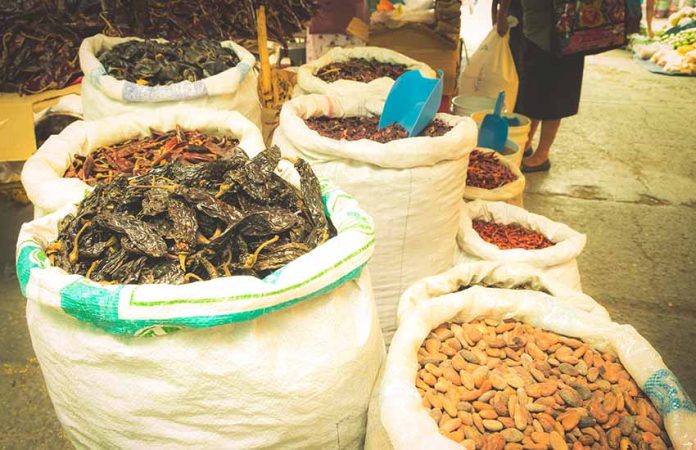Mexico’s largest trade partner is easily the United States, but it also has commercial relationships with nations located far beyond the region in which it is located.
Among the country’s lesser-known trade partners are numerous African nations, and the federal government is seeking to increase Mexican exports to that continent.
In a statement published last Saturday, the Ministry of Agriculture and Rural Development (SADER) noted that it has been collaborating with the government of Nigeria in order to increase the shipment of Mexican products to the country.

It also said that the government is aiming to “increase the presence of Mexican products in Africa in the medium term.”
“… Currently, Mexico trades food with Nigeria, Benin, Equatorial Guinea, Cameroon, Ethiopia, Ivory Coast, Uganda, Egypt, Morocco, Zimbabwe, Kenya, South Africa, Mozambique, Ghana, Democratic Republic of the Congo and [the Middle Eastern nation of] Oman,” SADER said.
The products shipped between Mexico and those countries include sesame, hibiscus flowers (known here as flor de jamaica), rice, strawberries, corn, apples, cacao, walnuts, pears tobacco, chicken, lobsters, sea bream (mojarra) and sardines, the ministry said.
“… Africa currently has a population of 1.3 billion people, and its birth rate is among the highest in the world, so its population is predicted to double by 2050 and [the people of Africa] will require more food,” the ministry said, underscoring the potential for growth in Mexico’s trade relationship with African countries.
Elaborating on Mexico’s collaboration with Nigeria, SADER said that the two countries had signed a “work plan for the safe export of hibiscus flowers from the African nation to our country.”
Francisco Ramírez y Ramírez, an official with agriculture sanitation authority Senasica, and Vicent Isegbe, a Nigerian agriculture official, signed the document in the presence of Nigeria’s ambassador in Mexico and representatives of the hibiscus flower industries of both countries, the ministry said.
Ramírez, the statement said, noted that “the agreement establishes that Nigerian authorities will certify exporting companies that comply with the requirements that Senasica demands, such as the correct cleaning and quarantine treatment of containers and the placement of traps to detect the presence of pests.”
Isegbe pointed out that flor de jamaica is an “emblematic product” of Nigeria due to its quality and widespread availability. According to the Senasica statement, he also said that Nigeria has “reliable tracing mechanisms to provide guarantees to importing countries.”
Hibiscus flowers are most commonly used in Mexico to make agua de jamaica, a refreshing nonalcoholic drink, but they can also be used in dishes such as tacos.
You might drink your next agua de jamaica in Mazatlán, Mexico City, Puerto Vallarta or La Paz, but the flowers to make the beverage just might have been shipped across the Atlantic from Lagos, Nigeria’s commercial capital.
Mexico News Daily
